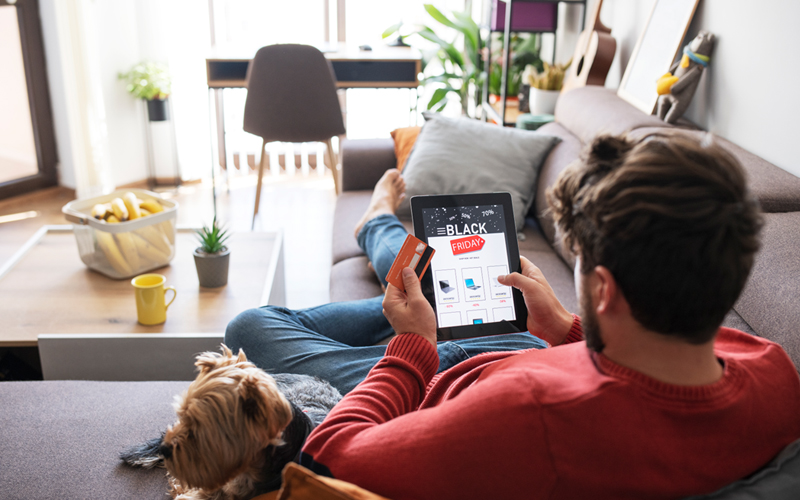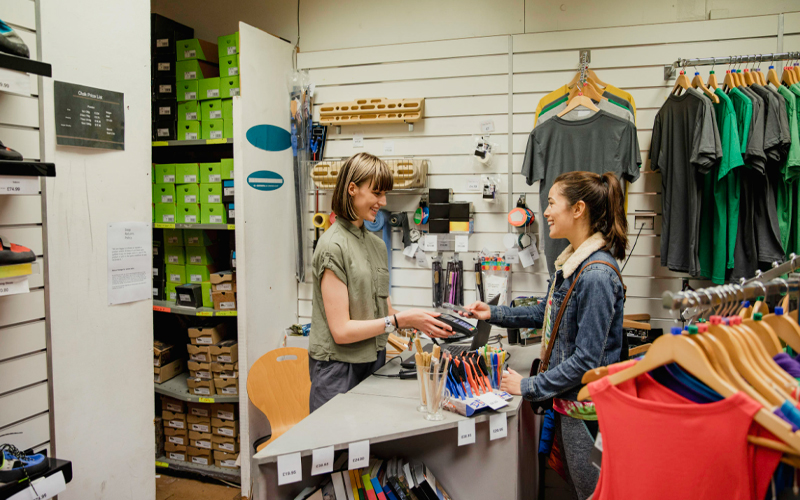Mobile technology is transforming retail, becoming a key driver of digital evolution. As consumers increasingly rely on mobile devices for shopping, retailers must strategically adopt mobile solutions to remain competitive. By blending online and offline experiences, mobile technology strengthens omnichannel engagement, leading to higher customer satisfaction.
Retailers embracing this transformation can unlock new growth opportunities, streamline operations, and deliver personalised experiences that build lasting customer loyalty in an increasingly digital-first world.
The role of mobile technology in retail digital transformation
Mobile technology is reshaping retail by enabling seamless, data-driven interactions between businesses and consumers.
According to a report by Statista, around 60% of global e-commerce sales are conducted via mobile devices, making a mobile-first strategy essential for maintaining a competitive edge. Below are key ways in which mobile technology is reshaping the retail industry:
Enhancing customer experience
Mobile technology has redefined consumer-brand interactions, enabling personalised and real-time engagement through mobile applications, in-store kiosks, and AI-driven solutions.
Retailers leverage mobile channels such as push notifications, SMS alerts, and in-app messaging to deliver tailored promotions and product recommendations, enhancing customer satisfaction and brand loyalty.
Additionally, AI-powered chatbots and voice assistants provide instant support, guiding customers through their shopping journey easily. This data-driven engagement optimises conversion rates and strengthens customer retention strategies.
Streamlining operations
Beyond customer engagement, mobile technology is enhancing operational efficiency in retail back-end processes, particularly inventory management. Barcode scanners and RFID-equipped mobile devices enable real-time stock tracking, reducing errors and delays.
These solutions enhance cost efficiency, optimise supply chain management, and improve overall retail workflows by reducing stockouts and overstocking.
Omnichannel retailing
Mobile technology bridges the gap between online and offline shopping, ensuring a seamless omnichannel experience. AI-powered mobile applications and responsive e-commerce platforms allow customers to browse products, check real-time inventory, and reserve in-store pickups, creating a frictionless shopping journey.
Features like AR-powered virtual try-ons, QR code scanning for product details, and digital payments enhance in-store experiences, boosting engagement.
Key innovations in mobile technology transforming retail
Mobile technology is driving a new era of retail transformation by enhancing operational agility, improving customer experiences, and enabling data-driven decision-making. Below are key retail technology innovations leading this shift:
Mobile payments
Mobile payments have transformed retail transactions, making them faster and more secure. Digital payment solutions, such as near-field communication (NFC) enabled mobile wallets and QR code-based systems, facilitate seamless and secure transactions, reducing dependence on physical cash and mitigating fraud risks.
Beyond transactional efficiency, mobile payments provide retailers with valuable insights into consumer spending patterns. Transaction data helps businesses refine marketing, tailor product offerings, and personalise promotions to drive sales.
Mobile Point-of-Sale (mPOS) systems
mPOS systems are replacing traditional cash registers with tablet and smartphone-based payment solutions, allowing sales associates to process transactions anywhere within a store. This reduces checkout times and enhances the overall shopping experience.
Additionally, mPOS solutions integrate with inventory management and CRM platforms, enabling real-time sales tracking and personalised customer interactions. This mobile-first approach enhances operational agility and improves retail workflow efficiency.
Augmented Reality (AR) and Virtual Reality (VR)
AR and VR technologies are transforming retail by offering immersive and interactive shopping experiences. Mobile applications integrated with AR enable customers to visualise products in real-time like virtually trying on clothing or preview furniture placement before making a purchase.
These innovations boost engagement, reduce return rates, and enable retailers to extend their market reach without substantial infrastructure investments.
IoT-enabled smart shelves and inventory management
IoT-powered smart shelves automate real-time inventory tracking, reducing the need for manual oversight and minimising stock discrepancies. These systems trigger alerts when inventory levels are low, ensuring timely restocking and improved supply chain efficiency.
Additionally, IoT sensors facilitate personalised promotions by sending customised offers to customers' smartphones based on their shopping history and preferences. This data-driven approach optimises store layouts, refines marketing strategies, and drives revenue growth.
Future trends in mobile retail technology
The future of mobile technology in retail is being shaped by continuous advancements in connectivity, security, and data processing. Key trends include:
5G Technology
The rollout of 5G networks is set to revolutionise mobile retail, enabling ultra-fast speeds for real-time AR/VR shopping experiences, seamless mobile transactions, and enhanced customer engagement. The improved connectivity will also support advanced retail applications, driving efficiency and personalisation.
Blockchain in retail
Blockchain technology enhances supply chain transparency by providing secure, verifiable product histories. This is particularly valuable in sectors such as luxury goods, pharmaceuticals, and sustainable retail, where authenticity and ethical sourcing are critical.
By reducing fraud risks and ensuring traceability, blockchain fosters consumer trust and operational efficiency.
Edge Computing
Edge computing optimises retail operations by processing data at the source, reducing latency, and enabling real-time personalisation, instant inventory updates, and efficient IoT management.
By minimising reliance on centralised cloud infrastructure, edge computing enhances data security and supports seamless omnichannel experiences.
How can Infosys BPM help?
Mobile technology in retail is no longer a luxury; it is a necessity for staying competitive in today’s digital-first world. To fully leverage the power of mobile technology, retailers need a trusted partner with the expertise and technological capabilities to drive digital transformation.
At Infosys BPM, we harness mobile technology to drive retail transformation. Our innovative, data-driven solutions empower retailers to enhance customer engagement, streamline operations, and drive sustainable growth in an increasingly digital world.
Partner with us to harness the power of digital transformation in retail and unlock new opportunities for success.







